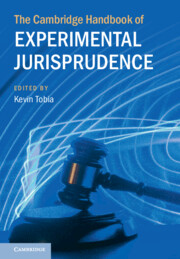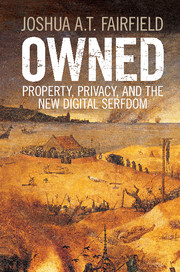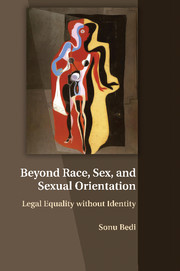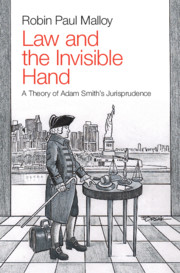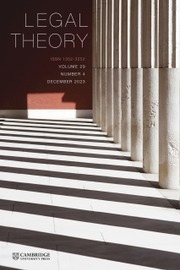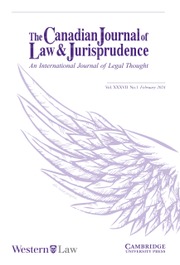The Cambridge Handbook of Experimental Jurisprudence
This handbook introduces readers to the emerging field of experimental jurisprudence, which applies new empirical methods to address fundamental philosophical questions in legal theory. The book features contributions from a global group of leading professors of law, philosophy, and psychology, covering a diverse range of topics such as criminal law, legal interpretation, torts, property, procedure, evidence, health, disability, and international law. Across thirty-eight chapters, the handbook utilizes a variety of methods, including traditional philosophical analysis, psychology survey studies and experiments, eye-tracking methods, neuroscience, behavioural methods, linguistic analysis, and natural language processing. The book also addresses cutting-edge issues such as legal expertise, gender and race in the law, and the impact of AI on legal practice. In addition to examining United States law, the work also takes a comparative approach that spans multiple legal systems, discussing the implications of experimental jurisprudence in Australia, Germany, Mexico, and the United Kingdom.
- Introduces the field of experimental jurisprudence, through theoretical introductions, analyses, and examples
- Provides specific applications of experimental jurisprudence, illustrating by example the multi-disciplinary approach, which integrates psychology, philosophy, linguistics, and law
- Takes a comparative approach with analyses of the United States, Australia, Germany, Mexico, and the United Kingdom
Product details
May 2025Adobe eBook Reader
9781009186360
0 pages
Not yet published - available from May 2025
Table of Contents
- Part I. Foundations and Theory:
- 1. Introduction
- 2. Psychology and jurisprudence across the curriculum
- 3. Holmes, legal realism, and experimental jurisprudence
- 4. The empirical component of analytic jurisprudence
- 5. The limits of experimental jurisprudence
- 6. Competing conceptual inferences and the limits of experimental jurisprudence
- 7. The contours of bias in experimental jurisprudence
- 8. Experimental jurisprudence and doctrinal reasoning: a view from German criminal law
- 9. Law and morality
- 10. Legal constraint
- Part II. Introductions:
- 11. Rules
- 12. Surveys and experiments in statutory interpretation
- 13. Corpus linguistics and armchair jurisprudence
- 14. Using experiments to inform regulation of consumer contracts
- 15. An Experimental jurisprudence approach to health law and disability law
- 16. Public perceptions of settlement
- 17. Experimental jurisprudence in international law
- 18. The law and psychology of gender stereotyping
- 19. The experimental jurisprudence of persistence through time
- 20. Experimental investigation of judicial legal reasoning
- 21. Eye-Tracking as a method for legal research
- 22. Intuitive jurisprudence: what experimental jurisprudence can learn from developmental science
- Part III. Applications:
- 23. Moral judgments about retributive vigilantism
- 24. How much harm does it take? An experimental study on legal expertise, the severity effect, and intentionality attributions
- 25. Human perceptions of AI-caused harm
- 26. Reasonableness from an experimental jurisprudence perspective
- 27. The meaning of “Reasonable”: evidence from a corpus-linguistic study
- 28. Commonsense consent and action representation: what is “Essential” to consent?
- 29. Who caused it? Different effects of statistical and prescriptive abnormality on causal selection in chains
- 30. Ownership for and against control
- 31. Examining the foundations of the law of judicial bias: expert versus lay perspectives on judicial recusal
- 32. The promise and the pitfalls of Mock Jury studies: testing the psychology of character assessments
- 33. Legal interpretation as coordination
- 34. Legal ambiguities: what can psycholinguistics tell us?
- 35. Cross-cultural perceptions of rights for future generations
- 36. The right to transgender identity
- 37. The legal conductome: the complexity behind decisions
- 38. Trial by internet: a randomized field experiment on wikipedia's influence on judges' legal reasoning.

